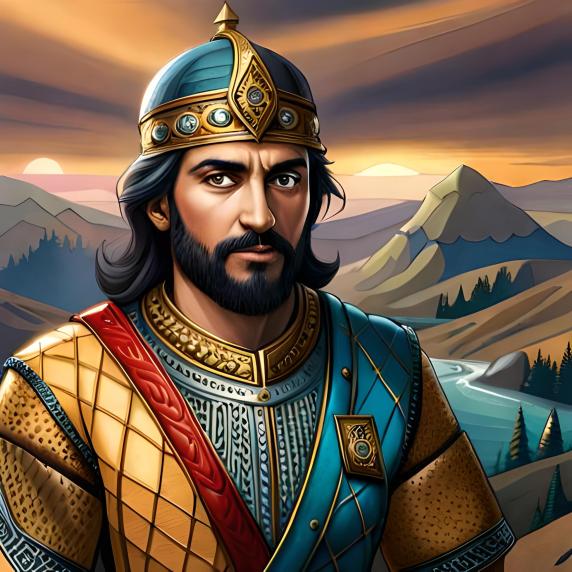The life of Salah ad-Din al-Ayyubi, commonly known as Saladin, is filled with captivating stories that have resonated throughout the ages. As one of the most renowned figures in Islamic history, Saladin’s stories have become the stuff of legends. In this article, we explore some of the famous tales that showcase the remarkable character, leadership, and chivalry of this iconic Islamic hero.
The Chivalrous Encounter:
One of the most famous stories that epitomizes Saladin’s chivalry and honor involves his encounter with a Christian knight during the Battle of Hattin. It is said that during the heat of the battle, a Christian knight approached Saladin, mistakenly believing him to be a different Muslim leader. The knight engaged in combat with Saladin, but instead of killing him when he had the chance, Saladin spared his life, recognizing his bravery and noble conduct. This act of mercy and respect left a lasting impression on the knight and showcased Saladin’s adherence to the principles of chivalry even in the midst of conflict.
The Recapture of Jerusalem:
One of Saladin’s most significant achievements was the recapture of Jerusalem from the Crusaders in 1187. The story of this conquest is the embodiment of Saladin’s military prowess, strategic brilliance, and his commitment to religious coexistence. After a prolonged siege, Saladin’s forces successfully breached the city walls, leading to the surrender of the Crusader forces. Despite the bloodshed and conflict, Saladin ensured the safety and well-being of the inhabitants, allowing Christians to peacefully leave the city if they desired. This benevolent act demonstrated his respect for religious diversity and became a defining moment in Saladin’s legacy.
The Gift of the Horse:
Another famous story involves Saladin’s encounter with Richard the Lionheart, the legendary English king and leader of the Third Crusade. During negotiations, Richard expressed admiration for Saladin’s prized Arabian horse. In a remarkable display of generosity and respect, Saladin gifted the horse to Richard, symbolizing his appreciation for the chivalry and bravery displayed by his adversary. This act of goodwill further highlighted Saladin’s magnanimous character and his ability to transcend animosities and forge connections even amidst conflict.
The Recovery of the True Cross:
Saladin’s reputation as a magnanimous and honorable leader is also exemplified in the story of his recovery of the True Cross. Following the fall of Jerusalem to Saladin’s forces, the True Cross, a significant Christian relic, was in his possession. Instead of using it as a bargaining chip or symbol of victory, Saladin returned the True Cross to the Christian community, recognizing its religious and historical significance. This gesture of goodwill and respect further cemented his reputation as a just and honorable leader.
Conclusion:
The stories of Salah ad-Din al-Ayyubi, or Saladin, have captivated audiences for centuries and continue to inspire admiration and awe. These tales highlight his remarkable character, chivalry, and leadership qualities. From his acts of mercy and respect on the battlefield to his commitment to religious coexistence, Saladin’s legacy remains a shining example of honor and righteousness. His stories serve as reminders of the enduring values of justice, compassion, and magnanimity, and continue to inspire people worldwide. Salah ad-Din al-Ayyubi’s life and the famous stories associated with him truly embody the spirit of heroism and have left an indelible mark on Islamic history.




